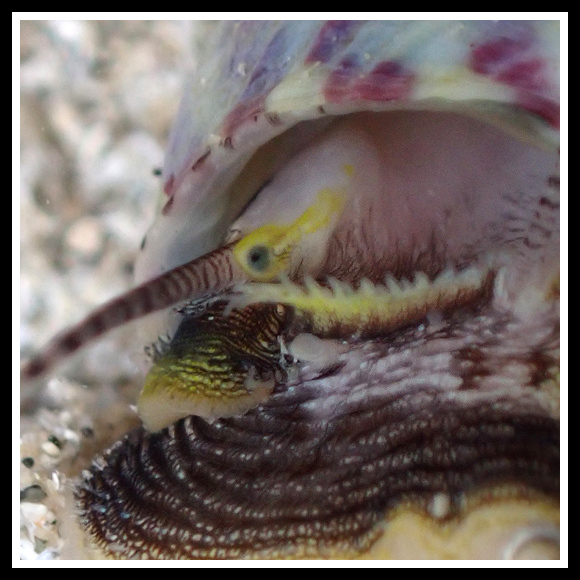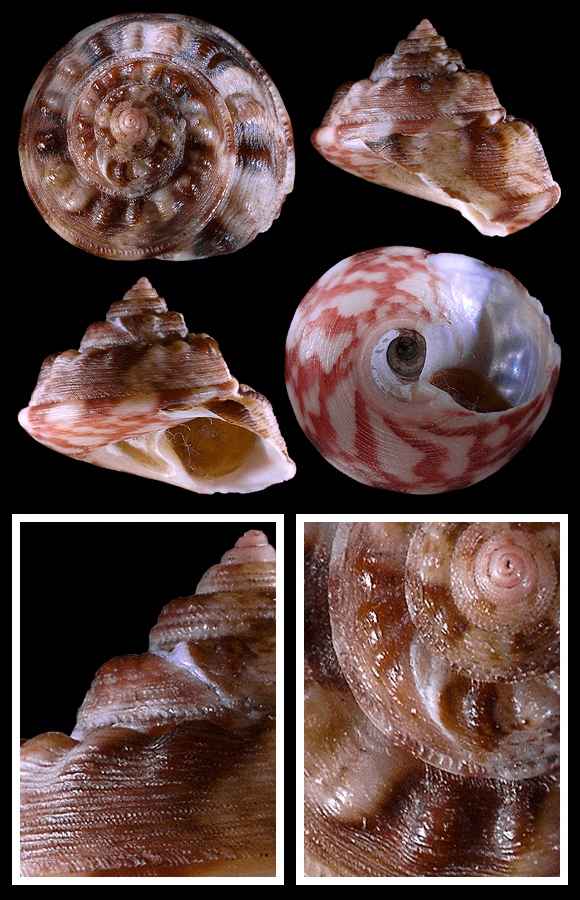
Shetland & Irish Sea, English Channel to Mauritania, Canarias, Mediterranean. Grazer and deposit feeder from the upper subtidal down to 200m deep, on various rocky or sedimentary bottoms: maerl, detritic sands, silty grounds etc.
Basionym: Trochus magus. Synonyms: bicarinatus, forskadauri, major, protumida, tuberculatus, vulcanica…
On soft bottom, Bay of La Spezia, Liguria, NW. Italy. 25mm.
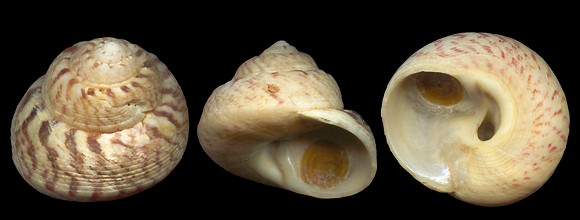
25m deep, on gravel bottom, Cabo Noli, Spotorno, Savona, Liguria. 27mm.
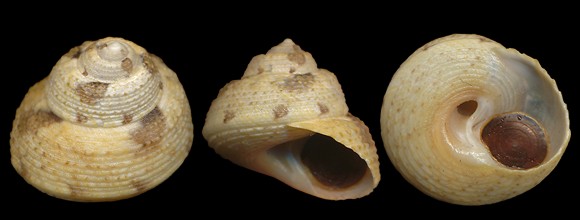
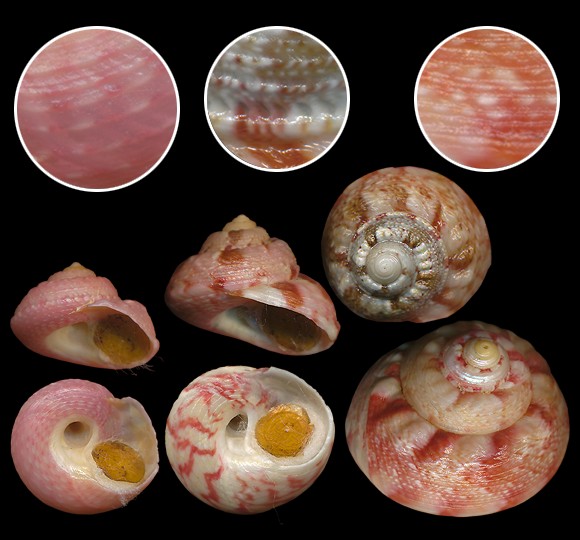
Dredged in sand bottom at 2-5m deep, Deltebre, mouth of Ebre, Tarragona, Catalunya, NE. Spain. 16-25mm.
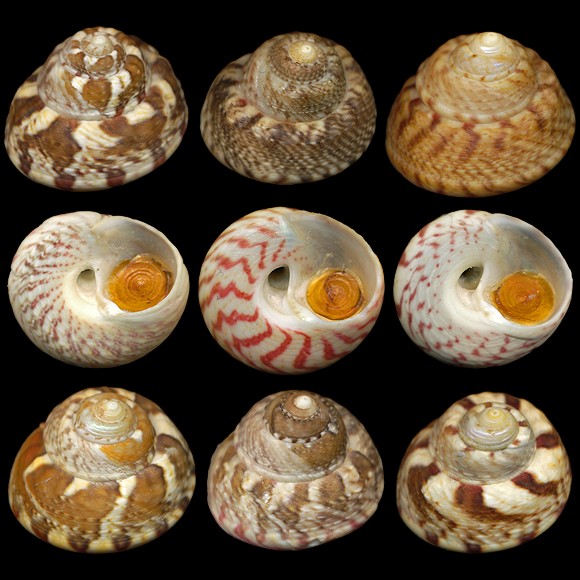
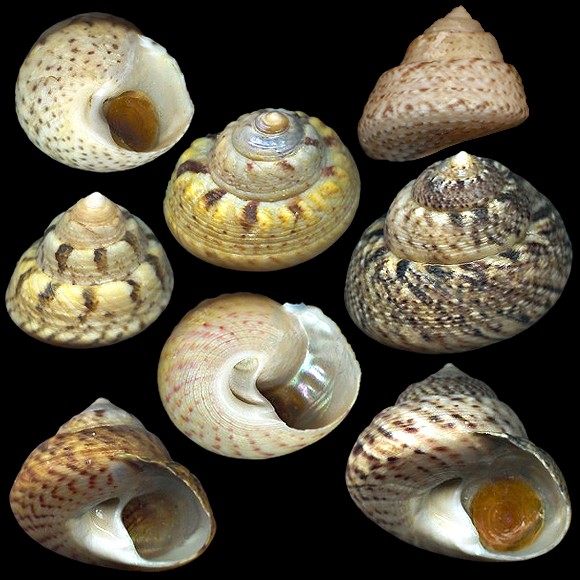
You can notice the presence of two albida in this lot, especially the one at top right. A distinctive feature is given by the umbilicus: wide open in magus, almost always closed by a callus in albida.
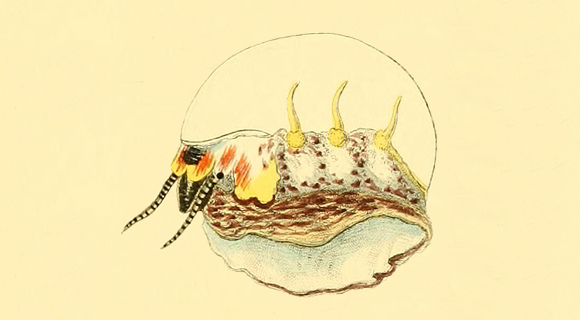
« This fine shell is found all round our coasts, though not everywhere in equal abundance. It is most vividly coloured in southern localities. A white variety was noticed by Mr. Jeffreys in the Hebrides and Zetland. It lives in from 3 to 25 fathoms water, and is most abundant in from 10 to 15 fathoms. » – F. & H.: op. cit. vol. II, London 1853, p.525.
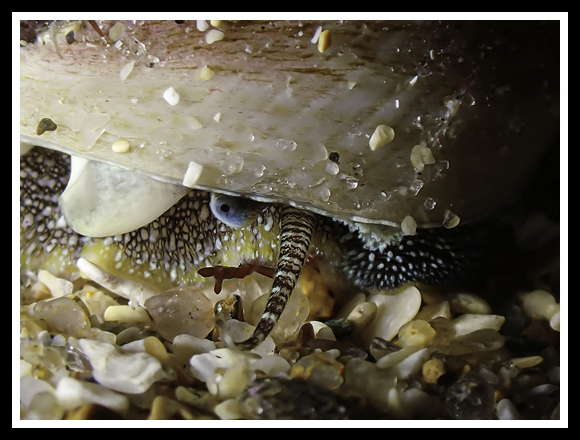
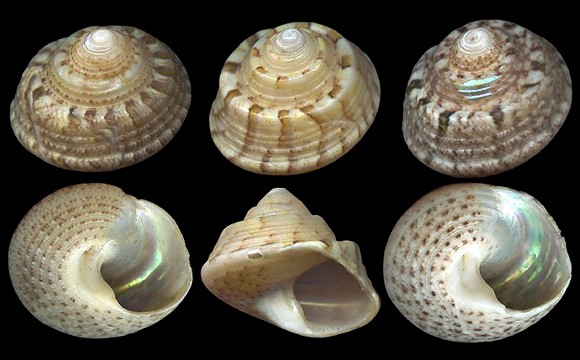
Pointe du Chevet, Saint-Jacut de la mer, N. Brittany. 14-18mm.
